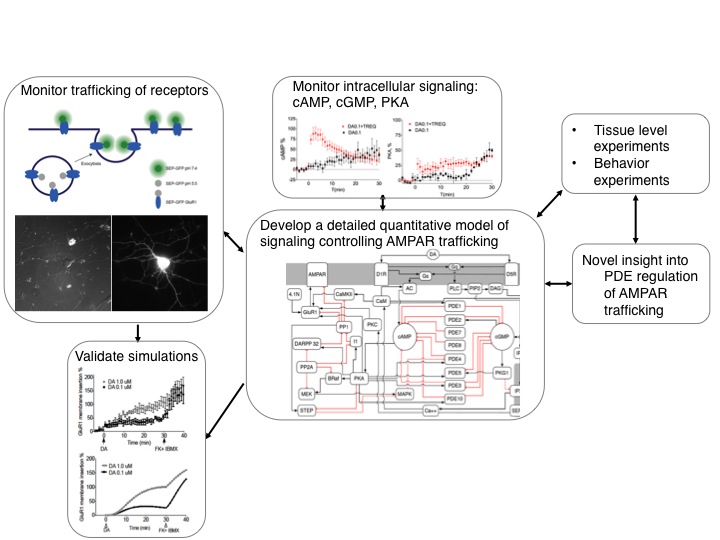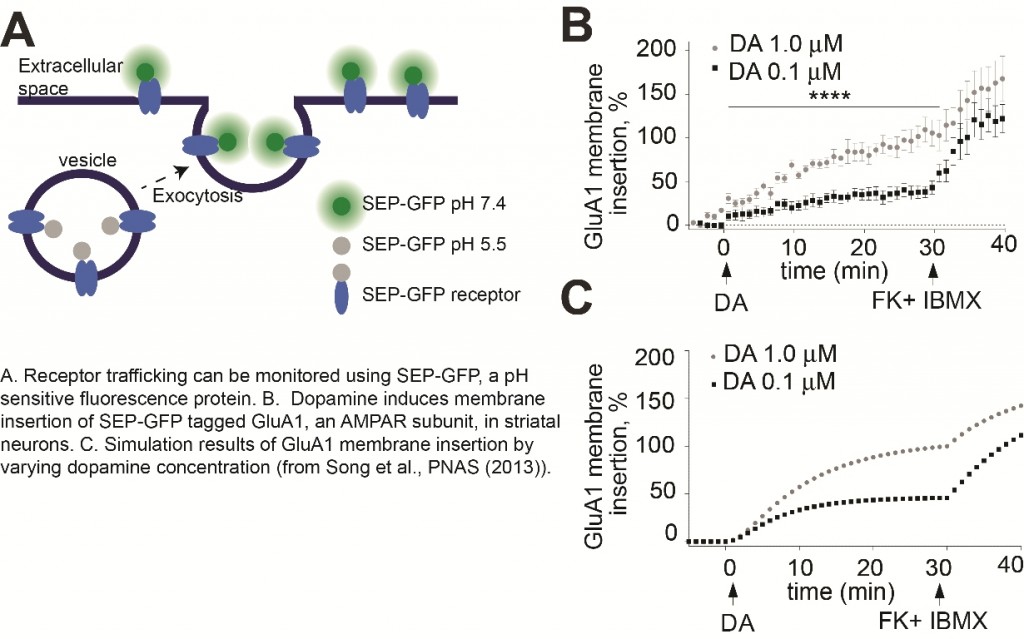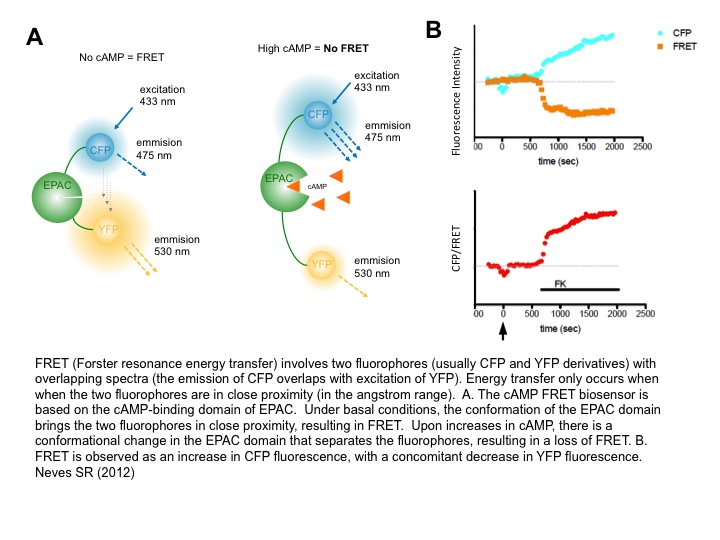Neurons modulate the strength of their communication by changing the number of neurotransmitter receptors at their post-synaptic membrane. This process requires the active trafficking of receptors from intracellular vesicles to the plasma membrane and for many neurotransmitter receptors, this trafficking is controlled by the activity of the cyclic nucleotide regulated kinases PKA and PKG. The modulation of synaptic strength is dysregulated in a number of psychiatric disorders, thus identifying targets that reverse these maladaptive changes could have therapeutic value.
One possible set of targets is phosphodiesterases (PDEs), the sole enzymes that degrade cAMP and cGMP, and control PKA and PKG activation. The PDEs superfamily is composed of 11 gene families exhibiting a wide range of affinities and catalytic efficiencies for cAMP or cGMP. The PDE superfamily also displays significant cross-regulation, where the activity of one PDE can affect the activity of others due to regulation by cAMP or cGMP.
Our lab uses a systems biology approach, where we develop dynamical computational models of signaling to understand the contribution of each PDE to the trafficking of neurotransmitter receptors.
We also measure in neurons cyclic nucleotide signaling and receptor trafficking using imaging –based approaches that provide fine temporal and spatial resolution data.



